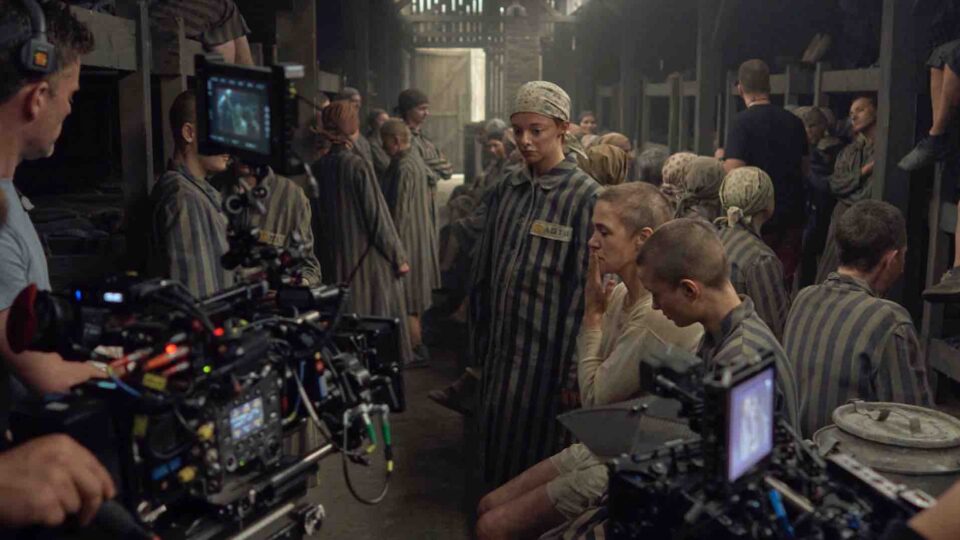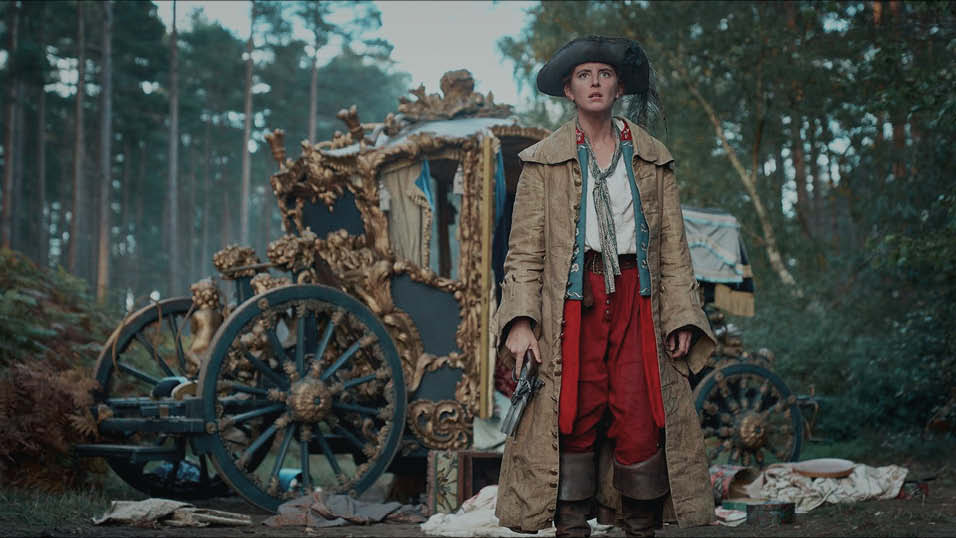The UK premier of Pussy Riot: A Punk Prayer opened Sheffield Doc/Fest in style, complete with a Skype session with one of the Pussy Riot protestors.
The industry sessions, while not featuring acid coloured balaclavas a la Pussy Riot, were a colourful mix.
Channel 4 chief creative officer Jay Hunt, BBC Two controller Janice Hadlow and BBC creative director Alan Yentob, were all interviewees in the Crucible theatre venue, while speakers from across the world and across the digital spectrum took to stages nearby across three days of presentation and debate.
Lucy Cooke’s sloths took centre stage at a session hosted by BBC commissioner Cassian Harrison. Cooke’s impassioned story about bringing not frogs (her first love), but sloths, from Costa Rica to Discovery (not the BBC), was a masterclass in how the internet can work for a producer. Posting a film online, seeing it turn viral, getting a commission, turning it into a series.
There was a strong digital showing. The Business of VOD revealed some of the first real opportunities to make some money selling through an online catalogue. The key message, which was echoed across multiplatform sessions, was to get your marketing right, planning the whole digital life cycle of your production, amassing as much interest as possible, including getting personally involved in forum-chat with your audience.
An Autopsy of Easter Eggs Live demonstrated how much care went into planning the marketing alongside Windfall Films’ production, starting with a take-over of the Foxes Live twitterfeed. While Al Brown from Vice said that putting some of Vice channel’s hard-hitting docs onto YouTube had exploded the number of views they were getting.
In a session featuring a fictional multiplatform pitch, Jordan McGarry of Vimeo revealed that she was working on a very similar idea to the one being pitched, featuring bands and linking into the music industry. One of the joys of the idea being that the bands bring their fans with them as an audience.
Back in the land of terrestrial commissioners, some of the UK’s leading documentary commissioners revealed their favourite productions. Celia Taylor, the head of factual and features at Sky, picked A&E. "Just when you think there’s nothing new in blue light territory, this comes along," she said. "I wish we had one of these. It’s beautifully brought together, it makes me cry, it’s the holy grail – bringing all the storytelling and intelligence of documentary making and making it returnable."
A&E also featured in a discussion on Documenting Institutions: Critical Revelation or Embedded PR?, where Channel 4 deputy head of Factual, kicked off the session by underlining that King’s hospital, where A&E is filmed, felt that it was taking "a huge, huge risk". Access was also in the spotlight in The Art of Access, from Palaces to Prisons, with Paul Hamann (Strangeways), Trevor McDonald (Inside Death Row) and Michael Waldman (Our Queen).
In a discussion of trends in European programming, there was a consensus that broadcasters were moving away from more exploitative content. In France, according to Patricia Boutinard Rouelle from Nilaya Productions, there was increased demand for science, natural history, biographical content and programmes dealing with big, landmark issues. In Germany, there was always demand for history and journalism, current affairs and human interest, said Elina Kewitz from German-based New Docs. Sahar Baghery, international TV research manager from Eurodata TV Worldwide, thought that European audiences would want more real life observation and stories with personal relevance going forward.
But what programming for an audience of mainly under 30 year olds? Speaking at a session addressing this demographic, we heard that Denmark’s DR3 had found success with Generation Plastic, giving the camera to young people about to have cosmetic surgery. While Al Brown from Vice UK showed a film about Japanese suicide victims which was a hit for the channel. There was some disagreement about the slower pace and presentation of the film, but different treatments, such as BBC Three’s Alex: A Life Backwards had been strong. Irene Stroyer from DR 3 added a touch of schadenfreude with the comment, "death is going very well in Denmark at the moment."
At the Director’s UK session, there was a plea for directors to get a commercial share of IP and to be given more time, in the face of shrinking time for pre-production. There was agreement on the panel that the standard rate of £1500 a week was felt to be too much to charge for a director on his or her first or second job. Several audience members volunteered to take a lower rate of £1400 or £1450 for a week’s work.
Pippa Considine
Share this story

















